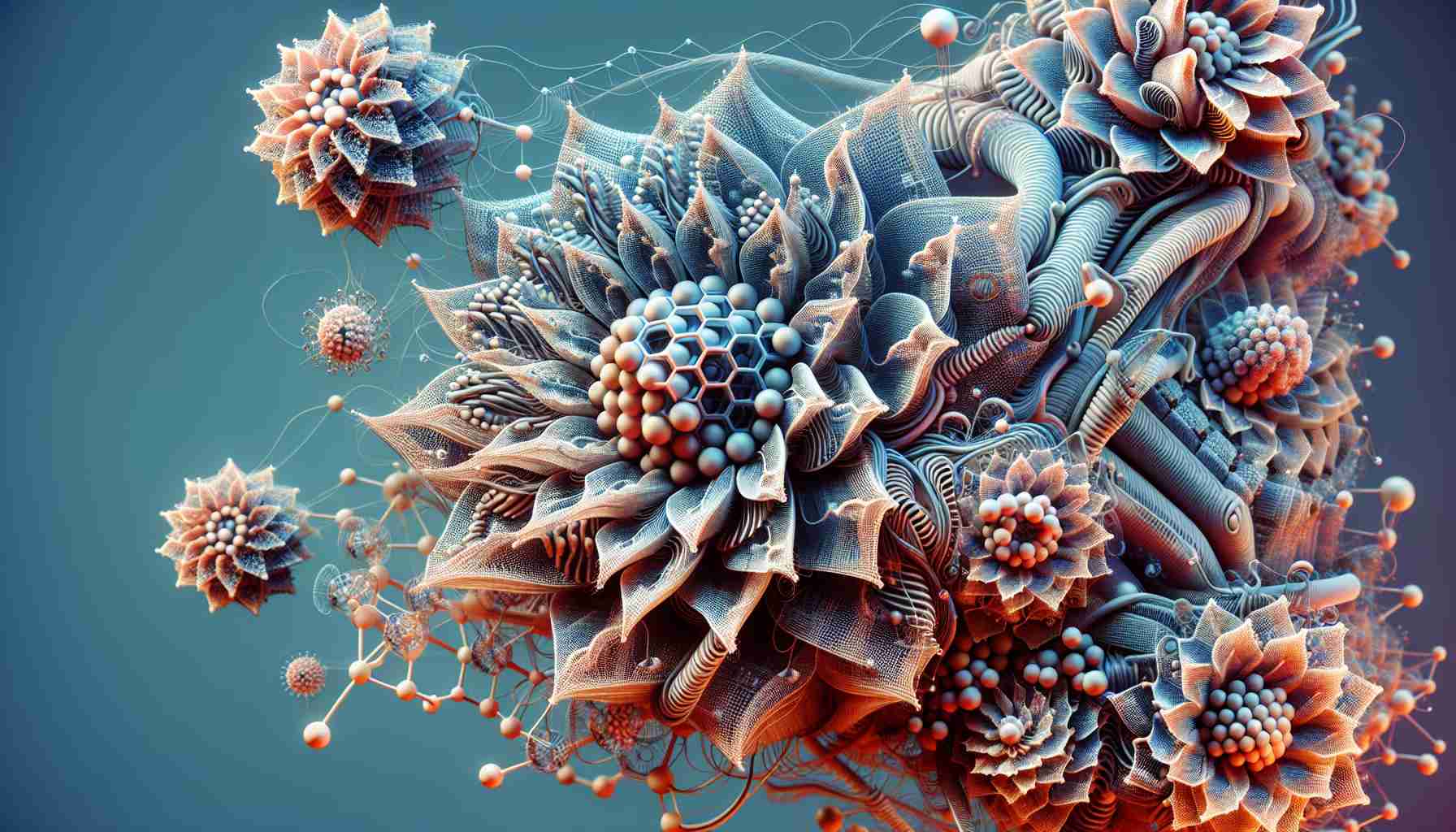- Innovative nanoflower-coated bandages offer active wound healing and protection.
- Made from copper(II) phosphate and tannic acid, these bandages possess antibiotic and anti-inflammatory properties.
- Laboratory tests show effectiveness against bacteria like E. coli and Staphylococcus aureus while preserving human cell integrity.
- The large surface area of the nanoflowers enhances medication delivery directly to wounds.
- These advancements may provide a natural, cost-effective solution for chronic wounds and infections.
- This breakthrough could significantly change the future of medical treatments and wound care.
Imagine bandages that not only protect your wounds but actively heal them! Scientists have unveiled a groundbreaking innovation: nanoflower-coated bandages infused with powerful antibiotic and anti-inflammatory properties. Crafted from the magical combination of copper(II) phosphate and tannic acid, these remarkable dressings are poised to transform the way we treat injuries.
In lab tests, these enchanting, carnation-shaped nanostructures displayed an impressive ability to combat bacteria, including notorious strains like E. coli and Staphylococcus aureus, while maintaining the integrity of human cells. This indicates a promising future for those suffering from chronic wounds or infections.
What makes these nanoflowers exceptional is their large surface area, which is perfect for delivering medications directly where they are needed most. By incorporating antioxidant, antibacterial, and antibiofilm traits, these bandages not only shield wounds but also accelerate healing processes. The researchers, led by Fatemeh Ahmadpoor and Pier Francesco Ferrari, emphasize that their creation could provide a natural, cost-effective solution for infection-fighting.
Imagine a world where a simple bandage can work tirelessly to protect and heal wounds while effectively warding off infection. This breakthrough isn’t just an advancement; it holds the potential to revolutionize medical treatment standards.
As this research progresses, we may soon witness the dawn of a new era in wound care—one where healing begins the moment you apply a bandage! Stay tuned for the next wave of medical innovation that promises brighter, healthier tomorrows.
Revolutionary Nanoflower Bandages: The Future of Wound Care Has Arrived!
Overview of Nanoflower-Coated Bandages
Recent innovations in wound care technology are leading us towards a future where bandages do more than just cover injuries. The newly developed nanoflower-coated bandages, designed by researchers Fatemeh Ahmadpoor and Pier Francesco Ferrari, leverage the unique properties of copper(II) phosphate and tannic acid. These materials not only provide a protective barrier but also possess strong antibiotic and anti-inflammatory functions capable of accelerating the healing process.
Key Features and Benefits
1. Enhanced Antibacterial Properties: The bandages effectively combat harmful bacteria, including E. coli and Staphylococcus aureus, which are common culprits in infections.
2. Oxygen and Nutrient Delivery: Thanks to their large surface area, these nanoflowers can enhance the delivery of essential medications and nutrients directly to the wound site, speeding up recovery.
3. Biocompatibility: The design maintains the integrity of human cells during treatment, ensuring that healing can occur without additional tissue damage.
4. Cost-Effectiveness: The natural composition of these bandages offers a potentially affordable solution to managing wound infections, making them accessible for broader populations.
Potential Use Cases
– Chronic Wound Management: Ideal for diabetic patients or those with prolonged healing conditions.
– Post-Surgical Care: These bandages could expedite recovery for patients after surgical procedures by reducing infection risks.
– Sports Injuries: Athletes could benefit from faster healing thanks to the anti-inflammatory properties of these dressings.
Limitations
– Regulatory Approval: As with any new biomedical product, achieving regulatory clearance can delay widespread availability.
– Long-Term Efficacy: Further studies are needed to assess the long-term efficacy and any potential side effects of the nanoflower technology.
Pricing and Market Forecast
Though specific pricing details remain under wraps, with the potential for cost savings associated with large-scale production, analysts predict that these innovative bandages may reach the market within the next few years.
Q&A: Addressing Important Questions
1. How do nanoflower bandages accelerate the healing process?
Nanoflower bandages utilize their unique structure to deliver medications and nutrients directly to the wound site while also providing antibacterial properties. Their composition encourages faster tissue regeneration and minimizes infection risks.
2. Are there any known side effects of using these bandages?
Currently, research indicates they are biocompatible, meaning they do not harm human cells. However, ongoing studies are necessary to monitor any potential long-term side effects or allergic reactions.
3. What future advancements are expected in wound care technology?
We can anticipate further developments in smart bandages that monitor wound healing conditions (like humidity and temperature) and release medications in response to detected bacterial presence.
Conclusion
The advent of nanoflower-coated bandages symbolizes a notable leap forward in wound management. By merging advanced materials with practical application, we are putting ourselves one step closer to a world where injuries are treated more effectively and efficiently.
For more updates on medical advancements, visit Medical News Today.












